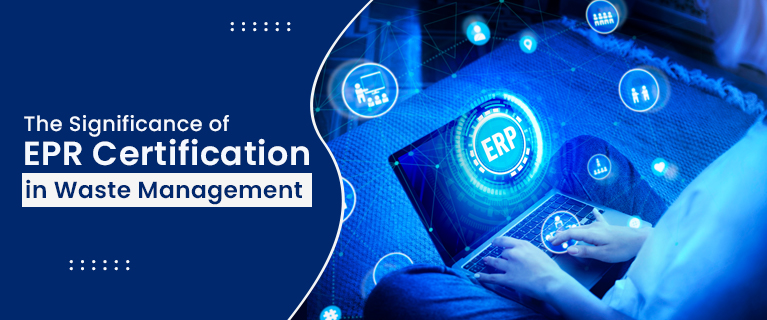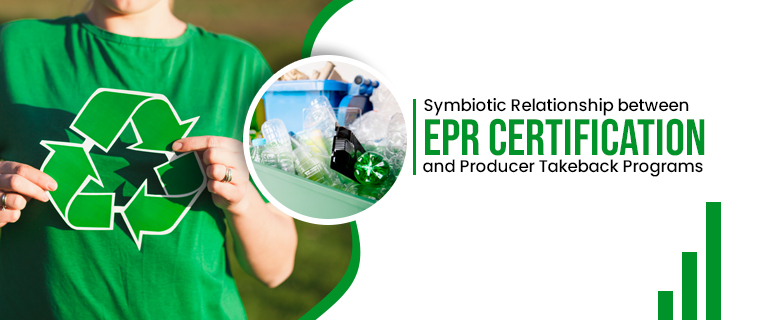The Significance of EPR Certification in Waste Management
In today's global landscape, environmental sustainability is paramount. As industries continue to grow and evolve, the management of waste becomes increasingly critical. Extended Producer Responsibility (EPR) certification emerges as a pivotal tool in ensuring that manufacturers take accountability for the environmental impact of their products. In this comprehensive guide, we'll delve into what EPR certification entails, its significance in waste management, and how it contributes to a more sustainable future.
What is EPR Certification?
Extended Producer Responsibility (EPR) is a policy approach that mandates producers to take responsibility for the entire lifecycle of their products, including their disposal and recycling. EPR certification serves as a formal acknowledgment of a company's compliance with these responsibilities. It signifies that the manufacturer has implemented measures to manage the environmental impact of their products, from production to end-of-life disposal.
Read also this-: Unlocking the Potential of EPR CertificationThe Significance of EPR Certification in Waste Management:
1. Promoting Environmental Stewardship: EPR certification encourages manufacturers to adopt environmentally friendly practices throughout the product life cycle. By assuming responsibility for the proper disposal and recycling of their products, manufacturers contribute to reducing environmental pollution and conserving natural resources.
2. Encouraging Product Design for Sustainability: EPR certification incentivizes manufacturers to design products with sustainability in mind. This includes using recyclable materials, reducing resource consumption, and minimizing the use of hazardous substances. By incorporating eco-friendly design principles, manufacturers can minimize the environmental impact of their products and enhance their overall sustainability.
3. Facilitating Proper Waste Disposal and Recycling: EPR certification ensures that manufacturers establish systems for the collection, transportation, and recycling of their products at the end of their lifecycle. By partnering with certified recycling facilities, manufacturers can ensure that their products are disposed of responsibly, reducing the burden on landfills and preventing environmental pollution.
4. Compliance with Regulatory Requirements: Many countries and regions have enacted laws and regulations mandating EPR for certain product categories. EPR certification ensures that manufacturers comply with these regulatory requirements, avoiding legal penalties and reputational damage associated with non-compliance.
How to Obtain EPR Certification:
1. Assess Regulatory Requirements: The first step in obtaining EPR certification is to assess the regulatory requirements applicable to your industry and jurisdiction. This may involve conducting research or seeking guidance from regulatory authorities or industry associations.
2. Implement Environmental Management Systems: Manufacturers should implement environmental management systems to ensure compliance with EPR standards. This may include establishing policies and procedures for waste management, training employees on sustainable practices, and conducting regular audits to monitor compliance.
3. Engage with Certified Recycling Facilities: Manufacturers should establish partnerships with certified recycling facilities to ensure the proper disposal and recycling of their products. Working with reputable recyclers ensures that products are handled responsibly and in accordance with environmental regulations.
4. Document Compliance Efforts: Maintaining accurate records and documentation of EPR compliance efforts is essential for obtaining and maintaining certification. This may include records of waste management activities, recycling processes, and audits conducted to assess compliance with EPR standards.
5. Obtain Third-Party Certification: Manufacturers can seek third-party certification to validate their compliance with EPR standards. Third-party certification provides independent verification of a company's environmental performance, enhancing credibility and transparency.
Read also this-: Exploring EPR Certification and Green Supply Chain PracticesConclusion:
In conclusion, EPR certification is a crucial tool in promoting sustainable waste management practices and reducing the environmental impact of products. By holding manufacturers accountable for the entire lifecycle of their products, EPR certification encourages the adoption of environmentally friendly practices and facilitates proper waste disposal and recycling. Manufacturers looking to obtain EPR certification should familiarize themselves with regulatory requirements, implement environmental management systems, engage with certified recycling facilities, document compliance efforts, and obtain third-party certification to validate their commitment to sustainability. Ultimately, EPR certification serves as a testament to a company's dedication to environmental stewardship and responsible business practices.




Comments
Post a Comment